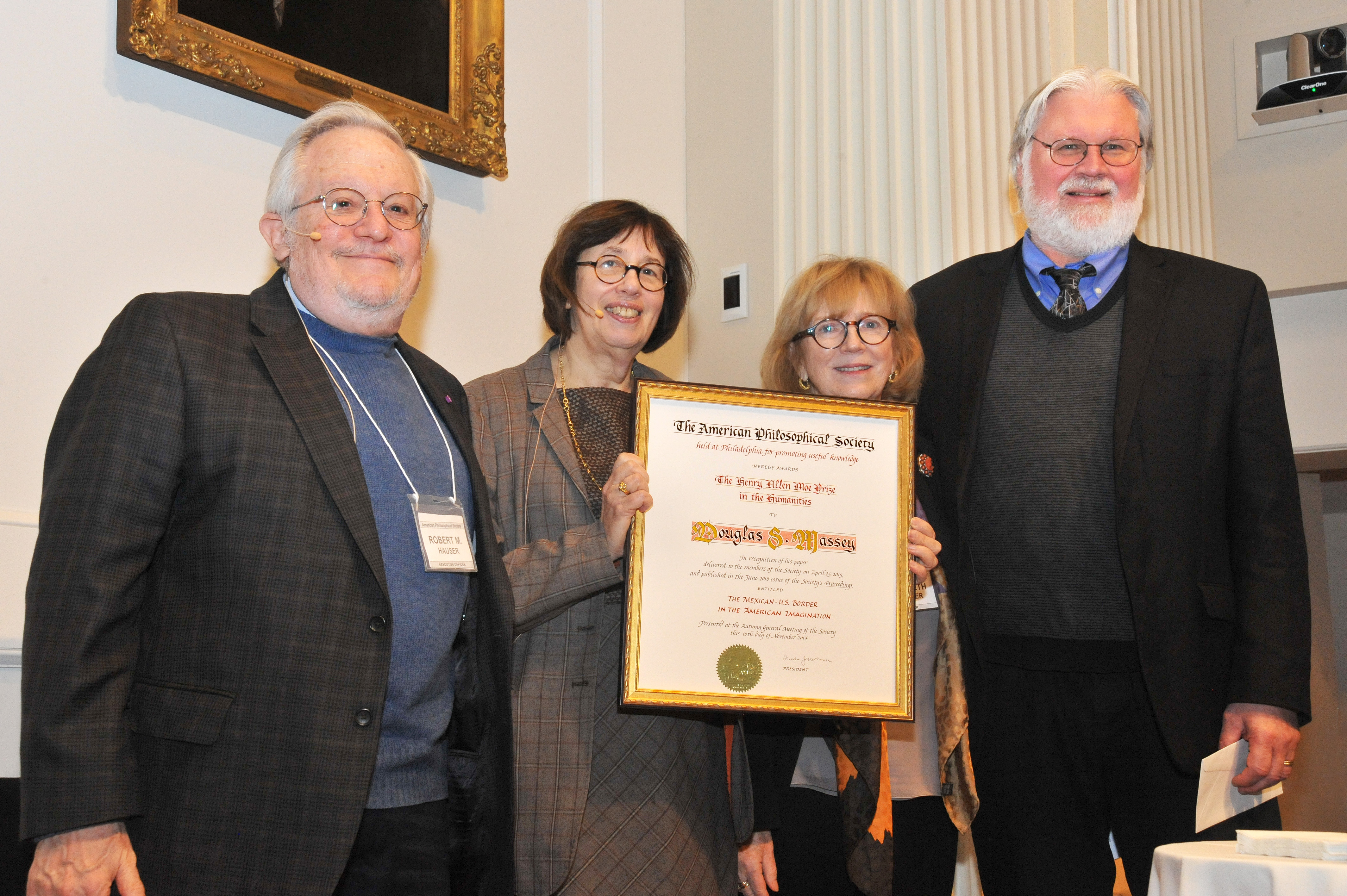2017 Henry Allen Moe Prize

2017 Autumn General Meeting
Douglas S. Massey
The recipient of the 2017 Henry Allen Moe Prize in the Humanities is Douglas S. Massey in recognition of his paper “The Mexican-U.S. Border in the American Imagination” presented to the Society at its April 2015 Meeting and published in Proceedings of the American Philosophical Society, volume 160, no. 2, June 2016. Doug Massey is the Henry G. Bryant Professor of Sociology and Public Affairs at Woodrow Wilson School of Public and International Affairs, Princeton University.
Douglas S. Massey is a sociologist who has made the study of segregation and immigration his life’s work. In this essay he rehearses in part his well-established arguments about the counter-intuitive relationship between undocumented immigration and border enforcement along the United States/Mexico border since the late 1970s. Despite the fact that the flow of undocumented migrants had stabilized, the presumed threat from Latino immigration was given new force through media exaggeration, political exploitation, and even academic pronouncement. The militarization of the border and the concomitant multiplication of the federal budget for border patrol by a factor of thirteen between 1986 and 2010, paradoxically led to an increase in the net rate of unauthorized migration, and subsequent acceleration of undocumented population growth north of the border. Whereas earlier migration had been concentrated on border states, the new growth was spread throughout the United States. What had been a circular flow of male workers was transformed into a rapidly growing resident population of undocumented families.
Massey’s focus is on the political, social, and emotional force of the idea of the southern border itself. He provides a succinct history of its emergence as a symbolic demarcation in the American mind, tracing its early construction after Mexico’s independence from Spain in 1821, followed by the subsequent abolition of slavery there in 1830. The Mexican American War, fought over both territory and slavery, led to the final establishment of the border in 1853. Both racial and economic concerns were at stake in the following century, when moments of border enforcement alternated with periods of relative lack of attention in the United States.
More recently the symbolic power of the Mexican border has enabled fear-mongering that goes beyond immigration, to include claims that radical Islamists are being disguised as Mexican immigrants, and that the Ebola virus is being imported through the southern border. Massey calls attention to ways in which the historical obsession with the Mexican border, now reinforced by such spurious claims, has meant that the defense of this border above all has come to stand for national security. The enormous resources devoted to enforcement have produced a border economy that thrives on the unproven theory of the value of border enforcement as a means of deterring undocumented immigration. Massey’s essay does not propose political or social solutions to the question of immigration across the southern border, but provides an illuminating examination of how a border can come to be endowed with symbolic force in the absence of factual evidence. His deft presentation of this powerful argument renders his essay accessible to readers from fields in the humanities outside his own specialization.
The prize was established in 1982 by a gift from the widow of Henry Allen Moe, to honor the longtime head of the Guggenheim Foundation and president of the American Philosophical Society from 1959 to 1970. It pays particular tribute to his firm commitment to the humanities and those who pursue them. The prize is awarded annually to the author of a paper in the humanities or jurisprudence read at a meeting of the Society.
Members of the selection committee were Elizabeth Cropper (chair), Dean, Center for Advanced Study in the Visual Arts, National Gallery of Art; Michael McCormick, Goelet Professor of Medieval History, Harvard University; Brent Shaw, Andrew Fleming West Professor of Classics, Princeton University.
